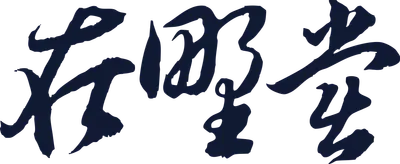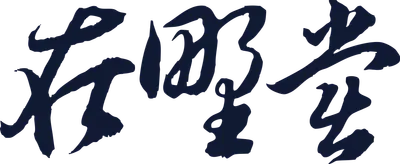——献给《在野党》创刊主编毛庆祥先生
作者:冯仍 编辑:鲁慧文 责任编辑:罗志飞
在中国漫长的黑暗岁月中,总有人愿意为光明燃尽自己。毛庆祥,这个在体制记录中并不显赫的名字,却是中国民主运动中不可忽视的火种。他用一生诠释了“在野”的真正含义:不身居权位,却心系国家命运;不附主流,却从不噤声。他走过的路,是由信念、牺牲与良知铸就的十字架。
一、生于农村,走向公民觉醒之路
1950年6月,毛庆祥出生于浙江杭州的一个普通农家。青年时代参军,退役后在杭州磁钢厂任职。他本可以像千万工人一样,顺从现实、平凡度日,但1976年春,他走上天安门广场,参与“四五运动”,并因此首次被捕。虽然这场运动后来被“平反”,但他的命运自此改写,踏上了一条不同的人生道路。
二、从民主墙到监狱墙:初心不改
1978年,“北京之春”的余热犹存,毛庆祥投身杭州民主墙运动,参与民刊《之江》《华东》的编辑工作。他清楚地看到体制如何制造愚民、掏空良知、用贪腐压制正义。他选择以笔为器,记录、质问、抗议;以良知对抗沉默的现实。
1981年,他以“反革命宣传煽动罪”再度入狱三年。
他的“罪”,无非是几句真话,而他无怨无悔,更加坚定地说:“国家若无宪政,人民永无宁日。”
三、创办《在野党》:以笔为枪,点燃火种
1998年,中国市场化改革二十年,社会贫富悬殊、官僚腐败丛生。“稳定压倒一切”的口号压制一切异议。在这样的高压下,毛庆祥毅然参与组建“中国民主党浙江筹委会”,并发起创办《在野党》杂志,自任主编。
这本刊物,成为当时极少数公开倡导民主宪政、系统提出政治改革方案的地下刊物之一,也是中国民主运动中的一簇明火。
1999年6月19日,他第三次被捕,因“颠覆国家政权罪”被判八年徒刑,并剥夺政治权利三年。
在狱中,他饱受精神与肉体的摧残,却从未妥协。2007年出狱时,他平静地说:“中国需要民主,我依然相信这一点。”
四、“在野之火”从未熄灭
很多人曾问他:“值吗?”
一个年近半百的普通工人,为了遥不可及的宪政理想,将生命中最宝贵的八年交付铁窗。
毛庆祥的回答,不在纸上,而在他的生命本身。
他不是名人,不是学者,却是《在野党》精神最真实的奠基者。
他的语言不喧哗,却穿透高墙;他的思想不虚浮,而是深植泥土。
对他而言,“民主”不是口号,而是生活方式、社会底线、国家出路。
五、我们接过笔,也接过火
今天纪念毛庆祥,不只是缅怀一位老人,更是致敬那份“敢为自由坐牢”的勇气。
在这片沉默太久的土地上,每一个不肯闭嘴的人,都是未来的种子。
每一位被囚禁的良知,终将化作历史的烈火。
毛庆祥已将他的笔迹深深刻入时代的记忆,而今,我们接过笔,也接过火。
正如他曾坚定写下的:
“靠枪毙几个贪官不能救中国,只有制度制衡、民主法治,才是长治久安之道。”
这不仅是他的信念,也应成为我们的方向。
在牢狱之外,我们继续呐喊——
因为我们深知,自由,从来都不是被赐予的,而是有人为它受过难。
The Fire of the Opposition: Walking Beside Mr. Mao Qingxiang
In Memory of Mao Qingxiang, Founding Editor-in-Chief of The Opposition Party
By Feng Reng · Final Editor: Luo Zhifei Translator: Lu Huiwen
In China’s long years of darkness, there have always been those willing to burn themselves to bring light to others.
Mao Qingxiang—a name unremarkable in official records—is an unignorable spark in the history of China’s democracy movement. He embodied the true meaning of being “in opposition”: holding no power, yet bearing deep concern for the nation’s fate; defying the mainstream, yet never falling silent.
The path he walked was a crucible of conviction, sacrifice, and conscience.
I. From a Rural Childhood to Civic Awakening
Born in June 1950 into a humble farming family in Hangzhou, Zhejiang, Mao Qingxiang served in the military as a young man before taking a job at the Hangzhou Magnet Steel Plant. He could have lived out his life like millions of other workers—quietly, obediently, and uneventfully.
But in the spring of 1976, he went to Tiananmen Square to join the April Fifth Movement.
He was arrested for the first time.
Though the movement was later “vindicated,” Mao’s life had already taken a decisive turn. He would never again follow the well-worn path.
II. From the Democracy Wall to Prison Walls: Faith Unshaken
In 1978, as the embers of the Beijing Spring still glowed, Mao joined the Democracy Wall movement in Hangzhou, helping edit underground journals such as Zhijiang and East China.
He saw clearly how the system manufactured ignorance, hollowed out conscience, and used corruption to crush justice.
He chose the pen as his weapon—to record, to question, to resist.
He chose conscience over silence.
In 1981, he was sentenced to three more years in prison for “counterrevolutionary propaganda and incitement.”
His only “crime” was speaking the truth.
Yet he had no regrets.
“Without constitutional government,” he said, “the people shall never know peace.”
III. Founding The Opposition Party: A Pen Becomes a Flame
By 1998, after two decades of market reforms, China faced a chasm between rich and poor, and systemic corruption was rampant. The slogan “Stability Above All” had become a tool to suppress dissent.
Amid this climate, Mao courageously helped found the Zhejiang Preparatory Committee of the China Democracy Party and launched the underground journal The Opposition Party, serving as its editor-in-chief.
It was one of the very few publications that openly advocated constitutional democracy and laid out concrete proposals for political reform.
It became a small but vital flame within the broader democracy movement.
On June 19, 1999, Mao was arrested for the third time.
He was sentenced to eight years in prison and three more years of political rights deprivation for “subverting state power.”
He endured severe physical and psychological abuse behind bars—but never wavered.
Upon his release in 2007, he simply said:
“China needs democracy. I still believe that.”
IV. The Flame of the Opposition Never Went Out
Many asked him: “Was it worth it?”
An ordinary worker nearing fifty, sacrificing eight of his best years in pursuit of an unreachable dream—constitutional democracy.
Mao’s answer wasn’t written on paper—it was written with his life.
He was not a celebrity, not a scholar, but he laid the foundation for the spirit of The Opposition Party.
His words were quiet, yet pierced prison walls.
His thoughts were grounded—not lofty, but rooted deep in the soil.
To him, “democracy” was never just a slogan.
It was a way of life, a moral boundary, and the only viable path for the nation’s future.
⸻
V. We Inherit the Pen—and the Flame
To remember Mao Qingxiang is not only to honor an elder,
but to pay tribute to the courage it takes to go to prison for freedom.
In a land long silenced,
every voice that refuses to shut up is a seed for the future.
Every imprisoned conscience will one day become a raging fire of history.
Mao’s handwriting is etched into the memory of our era.
Now, we pick up both his pen and his flame.
As he once wrote with unwavering clarity:
“Shooting a few corrupt officials will not save China. Only institutional checks and balances—only democracy and the rule of law—can bring lasting peace and stability.”
This was not just his belief. It must be our direction.
Beyond the prison walls, we continue to speak—
because we know:
freedom is never given. It exists only because someone has suffered for it.




